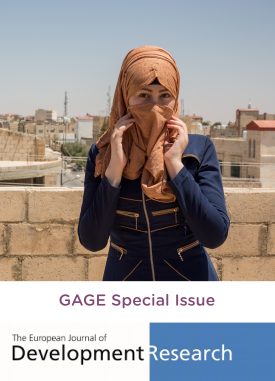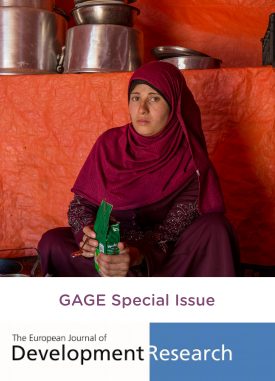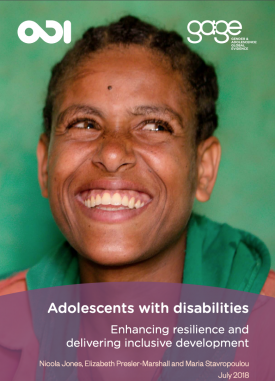The Sustainable Development Goals and the Leave No One Behind agenda involve a commitment to ensure the participation of persons with disabilities in all aspects of family and community life. This article explores the experiences of Palestinian and Syrian refugee adolescents with disabilities in Jordan in two domains of life: access to education, and their capacity to exercise voice and agency. The findings show that disability intersects with citizenship status and place of residence (camp vs village or city alongside the host community) to reinforce marginality for certain groups of adolescents with disabilities. Across the board, we find low educational aspirations and learning outcomes among adolescents with disabilities, and markedly lower social connectivity—but greater risk of violence by peers. To address these unequal outcomes, we reflect on the importance of developing more inclusive formal and non-formal education services to promote the participation of adolescents with disabilities, and investments in better training and awareness raising for parents, teachers and peers alike.
‘I Wish Someone Would Ask Me Questions’: The Unheard Voices of Adolescents with Disabilities in Jordan
Suggested citation
Bani Odeh, K., Jones, N., Pincock, K. and Malachowska, A. (2021) ‘”I Wish Someone Would Ask Me Questions”: The Unheard Voices of Adolescents with Disabilities in Jordan’ European Journal of Development Research (https://doi.org/10.1057/s41287-021-00421-0)
Related publications
Journal articles
29.07.21
‘No One Should Be Terrified Like I Was!’ Exploring Drivers and Impacts of Child Marriage in Protracted Crises Among Palestinian and Syrian Refugees
Across GAGE capabilities
Jordan | Palestine
Read more
‘No One Should Be Terrified Like I Was!’ Exploring Drivers and Impacts of Child Marriage in Protracted Crises Among Palestinian and Syrian Refugees
Read more


